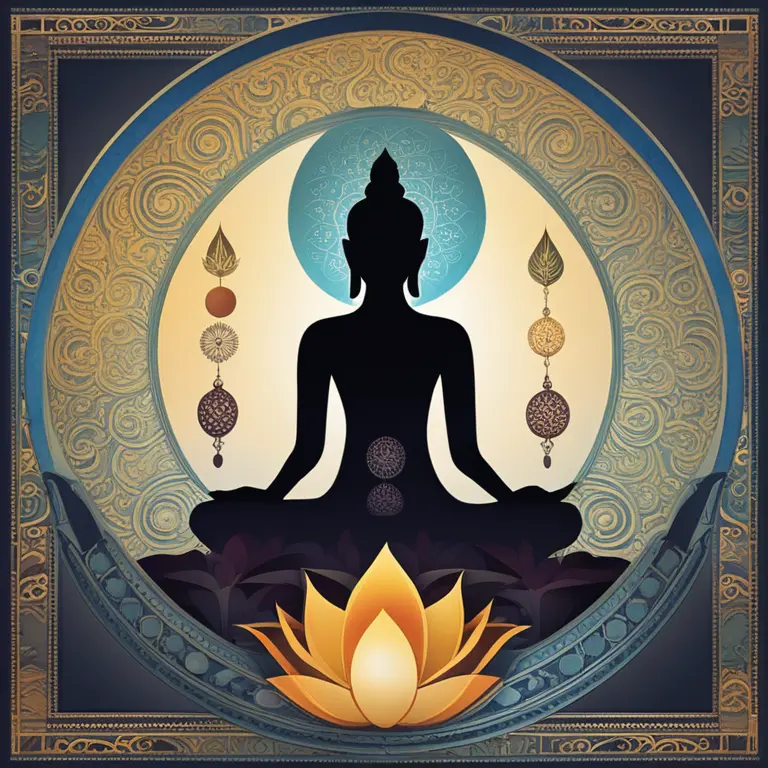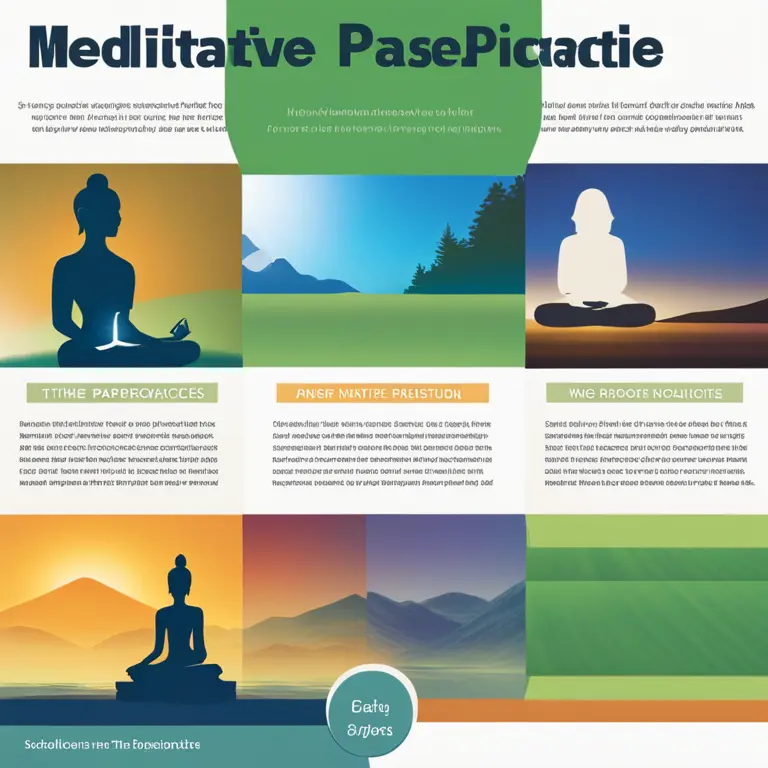
The Origins of Meditation
Dive into the ancient roots of meditation and its journey through various cultures throughout history.
article by Hina Kurosawa
Tracing Meditation's Ancient Roots
Meditation, as a practice, has a storied history that spans several millennia and bridges the gap between spiritual traditions and modern mindfulness techniques. Its origin is often traced back to the Indus Valley, where the seeds of what would become Hinduism were sown around 1500 BCE. Early Hindu scriptures known as the Vedas contain the first written accounts of meditative practices, emphasizing the importance of transcending the physical realm to reach a state of higher consciousness. Furthermore, around the 6th to 5th centuries BCE, other forms of meditation developed in Taoist China and Buddhist India, highlighting its significance across divergent cultures.

Ancient Techniques Evolving Over Time
While meditation began as a religious and spiritual endeavor, its techniques have evolved vastly over time. The Buddha's teachings on mindfulness and awareness, dating from around 500 BCE, represent a pivotal moment in the shaping of meditative practices. Similarly, in China, Laozi's Taoist teachings on harmony and balance influenced meditative practices focused on breath control and energy flow. Through the centuries, these practices spread across Asia, influencing various spiritual traditions and establishing themselves as foundational tools for personal and spiritual growth.

The Spread of Meditation to Western Societies
The transmission of meditation to the West can be largely attributed to the global interest in Eastern spirituality, which heightened during the 20th century. Influential figures like Swami Vivekananda and later Maharishi Mahesh Yogi were pivotal in introducing meditative techniques such as transcendental meditation to American audiences. By the 1960s and 70s, meditation had emerged not just as a spiritual practice but as a secular means for stress reduction and self-improvement, leading to scientific studies that validated its benefits.

Modern Adaptations and Research
As of 2024, meditation has become deeply integrated into wellness culture, undergoing further transformations to cater to contemporary lifestyles. The current state of meditation incorporates technological enhancements, including virtual reality experiences and apps designed to guide users through personalized meditation sessions. Research continues to expand, focusing on meditation's impact on brain plasticity, mental health, and its potential in medical settings as a complementary practice to conventional therapies.

The Ever-Evolving Purpose of Meditation
What remains steadfast is meditation's core purpose: to bring about a state of inner peace and heightened awareness. The spiritual heritage of meditation, its wealth of forms and techniques—as in the mindfulness movement, Zen practices, and yogic breathing—satisfies a diverse range of spiritual and secular seekers. Amidst the hectic pace of the 21st century, this ancient practice offers a respite, a moment of quietude, and a tool for self-reflection, proving its timeless relevance.
Insights into Future Trends
Looking ahead, meditation's trajectory seems to encapsulate an adaptive tradition that will likely see more integration with science and technology. Its benefits, already bolstered by contemporary research, may lead to even more widespread applications in educational settings, corporate structures, and within healthcare systems as a strategy for holistic well-being.
Published: 1/24/2024
Modified: 1/24/2024
More predictions
Come back here soon to learn more about yourself and your future


Effective Meditation for Contemporary Life
Discover the meditation methods that best suit the fast pace of contemporary life and how they enhance mental and emotional well-being.


Soothing Sleep: Meditation for Restful Nights
Discover effective meditation practices to enhance sleep quality and embrace restfulness in this insightful article.


The Most Effective Meditation Techniques for Harmony
Discover the potency of various meditation practices tailored for spiritual harmony and self-mastery as we navigate the diverse landscape of mindful tranquility.